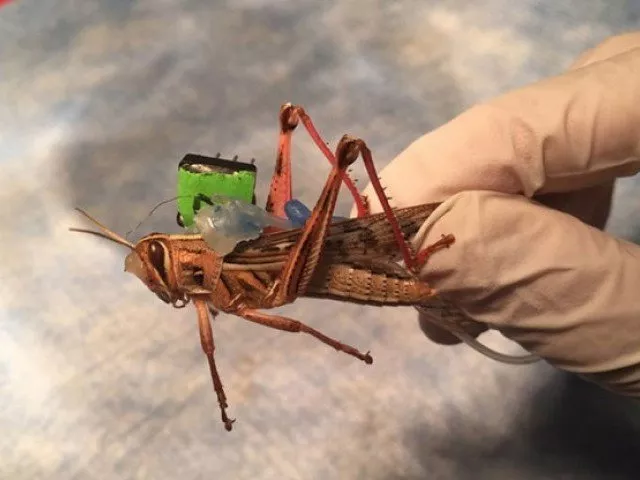Centre, Sindh undecided over impending locust menace
FAO in a recent report warns of a potentially serious food security crisis this year in Pakistan
ISLAMABAD: There seem to be no lull in the dealings between the Centre and Sindh as after the Covid-19 pandemic both have now locked horns over tackling the menace of locust invasion in the country.On Friday, Sindh Agriculture Minister Muhammad Ismail Rahoo said the provincial government had decided to protest Centre’s inaction on the impending locust threat and raised fears that it might turn out to be a bigger issue than Covid-19 pandemic.
He noted if no measures were taken, the country would face famine and a threat to food security.
He said the only solution to prevent locust attacks on crops was aerial spraying.
“Sindh does not have any aircraft for aerial spraying,” he lamented, claiming that the responsibility to carry out aerial spraying lay with the federal government.
The federal government observed it was cognizant of its responsibilities and was pursuing measures to deal with the hazard. It said Prime Minister Imran Khan had convened three special meetings on the issue and approved funds worth Rs1 billion to counter the threat.
Meanwhile, the Sindh government asked the Centre to provide six aircraft for aerial spray on an urgent basis to tackle the issue.
The help of the federal government was sought for a host of reasons such as directions of the premier in a previous meeting for better coordination between the Centre and provinces in terms of provision of aircraft, and a warning by the United Nations (UN) Food and Agriculture Organisation (FAO) that this year’s locust attack in Sindh might be severe and may continue for the next two years.
The Sindh government pointed out that farmlands in the province would once again come under an attack of locust swarms from Iran and that this new attack could “prove more harmful for the crops in the province as compared to the locust attack of the last year”.
The FAO in a recent report warned of a potentially serious food security crisis this year in several regional countries, including Pakistan, due to locust attacks.
Locust emergency – a threat to food security
The report titled “Desert locust situation in Pakistan” highlights migration pattern of desert locust in South West Asia, its current invasion in different countries, potential impact on Pakistan’s agricultural economy as well as the ongoing efforts of Pakistan’s government to contain the pest and the emerging scenario.
According to the report, Pakistan and Iran in the Eastern Region are especially prone as locust breeding is taking place in these areas, also due to the wet winter this year.
“In Pakistan, 38% of the area (60% in Balochistan, 25% in Sindh and 15% in Punjab) are breeding grounds for the desert locust, whereas the entire country is under the threat of invasion if the desert locust is not contained in the breeding regions,” it said.
The report showed that swarms of locusts would be migrating to Pakistan in coming weeks/months from southern Iran, border areas of Iran-Balochistan, Oman and East Africa.
It has been estimated that the losses to agriculture in case of a locust invasion can reach about Rs205 billion, considering a 15% damage level for the production of wheat, gram and potato only.
In anticipation of the possible threat, PM Imran had declared national emergency a few months back, and as result, a National Action Plan was put in place in collaboration with the provinces.
Resultantly, measures had been taken to survey the land in all the provinces.
According to National Disaster Management Authority (NDMA) report, a total of 153,665km area had been surveyed in the country.
For the purpose of survey and control, agencies like NDMA, provincial agricultural departments and Department of Plant Protection are working jointly in strong collaboration with each other.
Besides, military units are deployed on the ground for support in terms of men and material.
Survey reports are regularly shared with FAO for obtaining technical guidance and support.


COMMENTS
Comments are moderated and generally will be posted if they are on-topic and not abusive.
For more information, please see our Comments FAQ